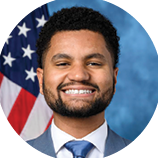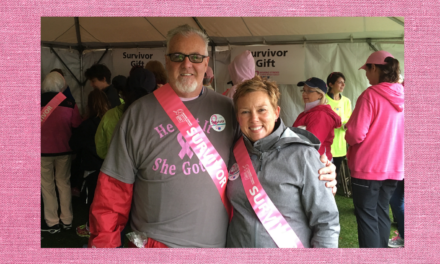
In November 2022, Zaynab Mohamed, a twenty-five-year-old former policy aide to a Minneapolis council member, became one of the first three Black women elected to the Minnesota state Senate in 164 years of statehood. She is part of a wave of Generation Z—people born in the late 1990s and early 2000s—who are running for and being elected to state legislatures.
Having grown up in a world shaped by debates about racial justice, school safety, and economic inequality, these young people are having a profound impact on public policy.
Mohamed immigrated to the United States at nine years old, earned a bachelor’s degree from the University of Minnesota, and worked as a community advocacy manager at the Council on American-Islamic Relations in Minneapolis, before deciding to run in District Sixty-three.
The win was a second historic victory in southern Minneapolis. In 2006, Patricia Torres Ray became the first Latina elected to the Minnesota Senate, serving five terms. Rather than seek re-election in District Sixty-three last November, Torres Ray endorsed Mohamed.
“These young people recognized that it is not enough to be a volunteer advocate or work for a government official, they must have skin in the game when policies that will affect them for the rest of their lives are decided.”
In addition to calling for public safety reforms and affordable housing, Mohamed supports a statewide $15-an-hour minimum wage and universal health care. Mohamed, a member of the Minnesota Democratic-Farmer-Labor Party (DFL), garnered more than 85 percent of the votes in the general election against Republican candidate Shawn Holster.
Mohamed was one of 261 Gen Z candidates for state legislatures in 2022. Seventy-three of them won, compared with twenty-seven in 2020—a 170 percent increase—according to the Millennial Action Project, a nonprofit, nonpartisan organization that works with members of state legislatures and Congress to bridge the political divide.
“Thirty-eight Republicans and thirty-five Democrats took their place in legislatures in red states as well as blue,” Millennial Action Project President and Chief Executive Officer Layla Zaidane tells The Progressive. “These young people recognized that it is not enough to be a volunteer advocate or work for a government official; they must have skin in the game when policies that will affect them for the rest of their lives are decided.”
State legislatures are taking the lead on issues like gun violence and climate change, so they are ideal places for members of Gen Z to share their unique perspective of growing up with school shootings and environmental disasters, Zaidane says.
Last year, state legislatures considered more than 1,900 energy-related measures, according to the National Conference of State Legislatures (NCSL). Twenty-five percent of those (about 500) were enacted, including measures to reduce greenhouse gases and support clean energy.
There were also massive wins at the state level for gun safety last year. In addition to fifty-one new gun safety laws, the group Everytown for Gun Safety reports that state lawmakers and governors blocked 95 percent of the gun lobby’s agenda and allocated $860 million for gun violence prevention programs, a new record.
Zaidane predicts that Gen Z will have a profound impact on strengthening American democracy because it is the most racially and ethnically diverse population in American history.
An analysis by the Annie E. Casey Foundation found that 51 percent of Gen Z members are white, compared with 55 percent of millennials (those born between the early 1980s and the early 1990s), 60 percent of Generation X (born between the mid-1960s and 1980), and 72 percent of baby boomers (born after World War II through the mid-1960s). Twenty-five percent of Gen Z are Latinx, and 15 percent are Black.
Many members of Gen Z have grown up in immigrant families and have experienced poverty. The portion of Gen Z living in poverty peaked at 23 percent in 2011 and 2012, and then steadily decreased to 17 percent—about 11.3 million young people—in 2021.
The political career of Rhode Island’s David Morales—the youngest Latinx person to be elected to a state legislature, at the age of twenty-two in 2020—exemplifies these trends. Raised by a single immigrant mother in Soledad, California, Morales received a bachelor’s degree in urban studies at the University of California, Irvine, before moving to Providence, Rhode Island. There, at age twenty, he became the youngest graduate of Brown University’s public affairs master’s degree program.
Morales defeated the incumbent Democrat, Daniel McKiernan, a small business owner who had lived in the district for more than thirty years. Morales said he entered the race because he wanted to improve the lives of workers like his mother, who scraped by on several low-wage jobs. In addition to issues like sick pay for caregivers and bans on tip theft, Morales has championed the expansion of health care, educational opportunities, and housing for low-income families.
Although the local Democratic committee did not endorse him, Morales won a three-way primary in 2020, with 49.4 percent of the vote. The endorsements of the Providence chapter of the Democratic Socialists of America, the Working Families Party, and other progressive organizations helped him win 96 percent of the votes in that year’s general election. (Earlier this year, the Providence Democratic Socialists of America withdrew that endorsement over Morales’s vote to re-elect Democrat K. Joseph Shekarchi as speaker of the state House.)
Morales’s legislative accomplishments include a law prohibiting employers from using immigration status against workers who are whistleblowers, such as those who report wage theft or safety hazards, and a measure that guarantees health insurance for all low-income children who are residents of the state, regardless of immigration status. He has also sponsored bills to prevent childhood lead poisoning by permitting tenants exposed to lead hazards to deposit rent in an escrow account until repairs are made, and to back safe staffing regulations in nursing homes.
In 2022, Morales won a second term, defeating independent Christopher Ireland by a vote of 2,154 to 473.
Members of Gen Z face many personal and professional barriers to entering elective politics, Zaidane says. The average annual base salary for a state legislator this year was $43,494, an NCSL analysis shows. That is far too low for people with crushing student debt or who are struggling to establish careers and support young families. Unlike first-time candidates who are middle-aged or older, young people haven’t had the time to develop professional connections that are essential for fundraising, recruiting volunteers, and marketing their messages, Zaidane says.
Fortunately, both political parties are devoting more attention to helping people who are Gen Z launch campaigns because by 2028, Gen Z and millennials will have become the majority of the electorate.
Zaidane predicts that more Gen Z candidates will run for the eighty-five chambers of state legislatures (approximately 65 percent of upper house seats and 85 percent of lower house seats, as of this writing) that have elections in 2024.
Progressive Democrats will get a boost from Run for Something, a nonprofit group founded on January 20, 2017—the day of Donald Trump’s presidential Inauguration—by Amanda Litman, who formerly was the email director for Hillary Clinton’s 2016 presidential campaign, and Ross Morales Rocketto, who had fifteen years of experience in campaign management and grassroots organizing. They believed that Democrats needed a sustainable source of progressive candidates for state and local offices who would move up to Congress, and even the presidency.
From 2017 to 2021, the organization endorsed more than 1,800 first-time candidates, of whom 637 were elected to offices ranging from state legislators to county clerks.
Run for Something encourages people from hardscrabble backgrounds, women, people of color, and others to consider running for office by tapping their life experience and vocational skills. Candidates’ biographies reveal years of advocating for reproductive choice, universal health care, equal rights for LGBTQ+ people, and fair wages, as well as a strong commitment to addressing climate change.
But the organization is not a one-size-fits-all group: It recognizes that being a progressive in Louisiana is different from being a progressive in California, so it helps candidates tailor their campaign messages to their district’s unique needs.
In addition to fostering relationships between Gen Z candidates, the organization matches candidates with volunteers who have expertise in digital advertising, video recording, and other technical matters, and helps them identify sources of campaign funds.
Run for Something alumni have made a significant difference in their states, extending Medicaid to 400,000 people in Virginia, fighting book bans in Pennsylvania, and successfully filibustering a ban on abortion in Nebraska, the group says.
Run Gen Z, a nonprofit created to recruit young conservative leaders for state and local races, also expects to play a major role in the 2024 elections.
In 2022, it recruited dozens of young Republicans who support free market capitalism, fiscal restraint, limited government, and other conservative policies to run in state and local contests. Eighty percent of them won.
The organization gives young people the confidence to run for office, says its founder, Joe Mitchell, who, at twenty-one, became the youngest person elected to Iowa’s legislature in 2018. (Mitchell was defeated in a Republican primary in 2022.)
Young people often assume that nobody will vote for them, so Mitchell points out that he was a college student when he won a four-way Republican primary to succeed then seventy-seven-year-old Republican Dave Heaton, who did not seek re-election.
On the other side of the political spectrum, in August, David Hogg, a twenty-three-year-old gun control activist, launched Leaders We Deserve, a hybrid political action committee backing progressive candidates under thirty years old who are running for state office and candidates under thirty-five years old who are running for federal office. The group will target open Democratic-held seats in the upcoming 2024 primary season.
Nationally, voters twenty-nine or younger favored Democrats by a 63 to 35 percent margin in last year’s midterm elections, according to a day-after survey by the Center for Information & Research on Civic Learning and Engagement at Tufts University. But that may change. Gallup data from 2022 shows that 31 percent of Gen Z identify as Democrats, 17 percent as Republicans, and 52 percent as independents.
Zaidane says she is encouraged by the accomplishments of the participants in her organization’s Future Caucuses, which show that Gen Z and millennials work across the political aisle more than their older peers, authoring more than one-third of bipartisan measures signed into law across the country.
To encourage these efforts, the Millennial Action Project recently held its annual Future Summit in Indianapolis, Indiana, where young state legislators discussed strategies to promote renewable energy, affordable housing, and other measures.
In the coming year, Future Caucuses in more than thirty states will tackle these issues. This year, the Arkansas Future Caucus reported it passed thirty-nine bipartisan, future-oriented bills, including a law to strengthen kinship placement for children in foster care.
Recruiting and grooming Gen Z candidates is beginning to pay off. In January, twenty-five-year-old Maxwell Alejandro Frost, a Florida Democrat, became the first Afro Cuban and Gen Z member of Congress.




